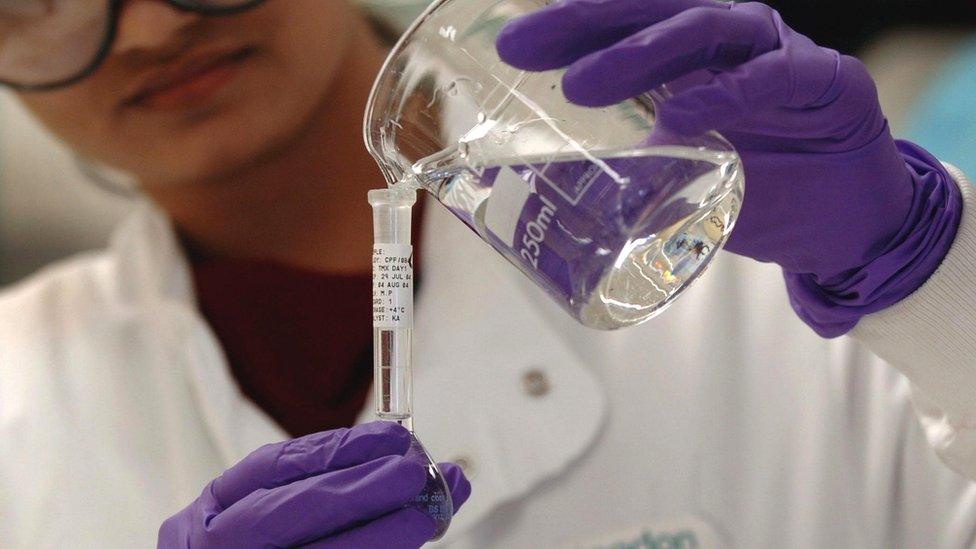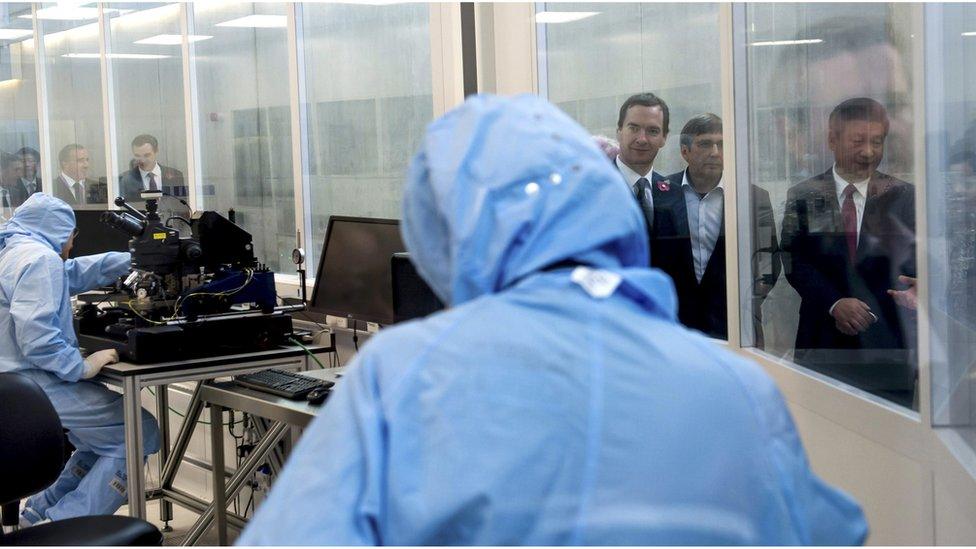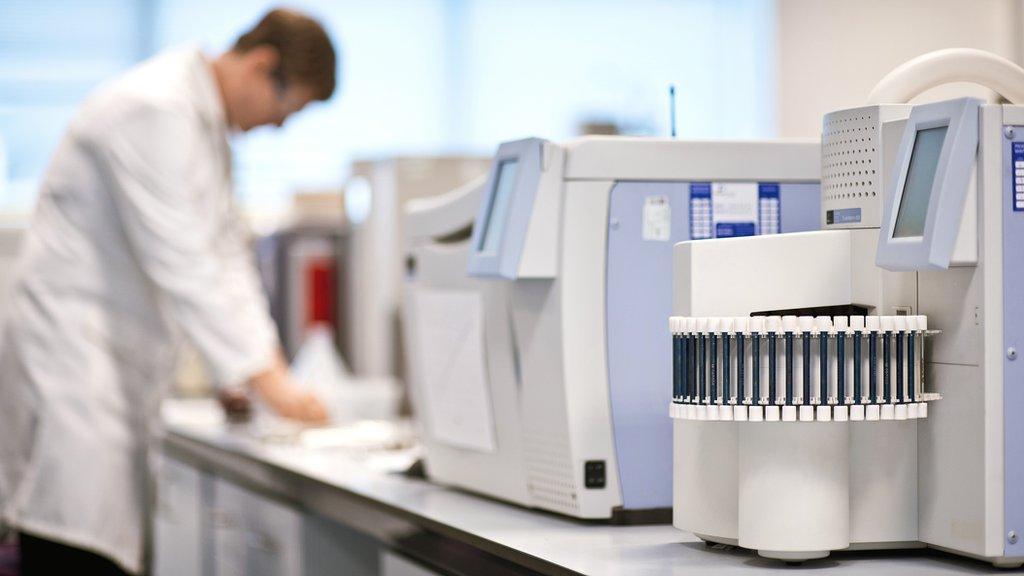'Good' settlement for UK science may come with strings
- Published

The UK chancellor has said that the science budget will be protected in real terms - equating to an increase.
This is being seen as an improvement on his commitment in 2010 when funding was frozen and eroded by inflation.
But the additional cash is expected to be spent on projects to support overseas development aid.
Initial reaction from the scientific community suggested that this was "good" settlement - but not a "great one".
In announcing the settlement in his Spending Review on Wednesday, George Osborne said: "In the modern world, one of the best ways you can back business is by backing science.
"That's why, in the last Parliament, I protected the resource budget for science in cash terms. In this Parliament I'm protecting it in real terms so it rises to £4.7bn."
One senior researcher, who did not wish to be named, told BBC News that the details they had seen suggested there might be a number of strings attached.
"What has actually been announced is another four years of flat cash for the core activities of the research community," they said.
The previous flat cash settlement has seen an erosion of spending power for research, so the concern is that a similar situation would continue.

George Osborne shows off the UK's national graphene institute to China's President Xi Jinping
The chancellor's extra £1.5bn is from a fund for supporting overseas development projects. That would mean that by 2020 up to 10% of the science budget will be ring-fenced - to be spent only on projects that would benefit development aid.
Those responsible for allocating the money will hope that these additional funds can be used on projects that meet the development criteria. This would release funds for others that don't.
The Nobel Laureate and president of the Royal Society, Sir Paul Nurse, said: "The chancellor rightly declared the UK to be brilliant at science and by protecting the science budget in real terms he is giving British scientists an improved chance of maintaining our global leadership, improving lives and driving the economy.
"The last five years have seen cuts to the science budget of around £1bn, so protection from such cuts over the next five years is to be welcomed.
"This settlement does, however, still leave us well behind our competitors in terms of the percentage of our GDP we spend on research. There is also still detail to be looked at and we will be doing that over the coming hours and days."
Many had hoped for an increase in the science budget to stay competitive with other nations that are heavily investing in science. Among them was Prof Paul Hardaker, chief executive of the Institute of Physics.
"This will help UK science but we still need to be mindful of how this compares to higher investment by international competitors," he said.
Similar concerns were expressed by Dr Jenny Rohn, chair of Science is Vital.
"As it stands, this science budget appears to be smaller than in 2010 thanks to preceding inflation, and will continue to shrink both as a fraction of GDP and per capita," she explained.
Many others though, such as Sir John Tooke, president of the Academy of Medical Sciences, were relieved that science had been spared the cuts suffered in other areas of government spending.
"In a wider landscape of shrinking budgets, we're grateful that the chancellor has recognised the need to protect research for the long-term benefit of the UK," he said.
Industrial strategy
Naomi Weir, acting director of the Campaign for Science and Engineering (Case), said she was pleased to see that the chancellor was continuing to support a strategy for science and industry.
"Committing to invest in science and innovation is investing for the future: creating high-value jobs, driving productivity, and catalysing economic growth," she said.
"It will have far reaching benefits in education, security and resilience, and health. There are undoubtedly some details to unpick, but it is encouraging on many counts to see that the government has listened to the science community and made an evidence-informed decision to back science and engineering in today's Spending Review."
The chancellor also announced funding for the Royce Institute in Manchester, and new agricultural research centres in Shropshire, York, Bedfordshire and Edinburgh.
And Mr Osborne announced a £75m investment for the Cavendish Laboratories at Cambridge University.
He added that in order to get the most from government investment in science, he would implement the recommendations of a review of science spending carried out by the Nobel Laureate Sir Paul Nurse.
Among his suggestions was that a committee of ministers, possibly chaired by Mr Osborne himself, should oversee research spending.
Follow Pallab on Twitter, external
- Published29 November 2011
- Published17 July 2015

- Published19 November 2015
